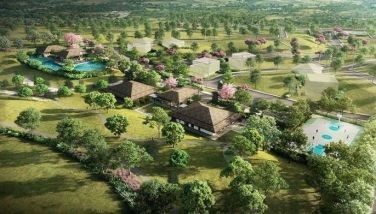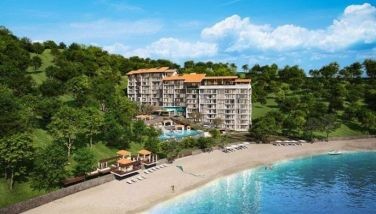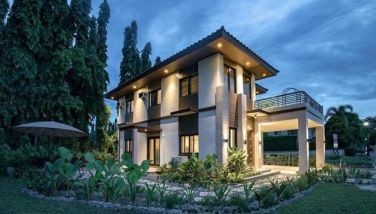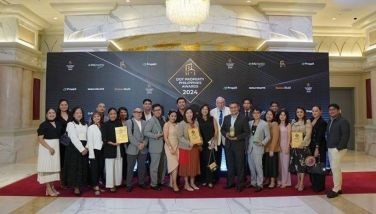MacroAsia's reclamation facility saves water for the future
MANILA, Philippines - “Let every individual and institution now think and act as a responsible trustee of the Earth.” Thus said International Earth Day founder Joseph T. Chua, president of MacroAsia Corp. and chairman of MacroAsia Property Development Corp. (MAPDC) quoting John McConnel. Chua’s quotation set the theme and the tone for the recent launch of the company’s water reclamation facility, a joint project of MAPDC and Lufthansa Techniks Philippines (LTP).
“Water reclamation is reclaiming our future by making reclaimed water available to consumers for purposes in place of water from fresh sources,” Chua told his audience during the official launch of the facility.
“Our plan is to provide reclaimed water to ensure that we have the water we need today and in the future. As the demand for fresh and clean water increases, this facility will help preserve sources and protect the environment that provide our drinking water with the use of reclaimed water as reliable and economical alternative source for other uses while not yet accepted for drinking,” Chua added.
MAPDC president Chris Lu explained the process of water reclamation, saying it starts from the excess effluence generated by the LTP. The effluence is treated to conform with environmental standards. Whereas it used to be thrown away, it is now used as the raw input for the water reclamation facility. The water then passes through a four-stage filtering and disinfection process, and the output more popularly called reclaimed water is clean, clear and useable water.
“The reclaimed water,” Lu said which can be used for watering plants, landscapes and parks, washing cars and vehicles and other purposes, “is actually as good as potable water. However, it is not being pushed yet for human consumption, but we are hopeful that in due time it would, because of the stigma that the recycled water came from the sewage and domestic waste.”
It must be noted that using treated water for landscapes and parks began as early as 1929 in Los Angeles and the first reclaimed water facility in California was built in 1932.
Reclaimed water, sometimes called recycled water, is former wastewater (sewage) that has been treated to remove solids and impurities, is used to help recharge groundwater aquifers. This is done for sustainability and water conservation.
Lu said the project is also aimed at addressing the adverse effect of the climate change which surely would result in water shortage in the near future because water resources are being depleted at a rate much faster than what experts have foreseen.
In simple ceremonies held inside the MAPDC compound at the Villamor Airforce Base in Pasay City, Chua stressed the company’s commitment to environmental sustainability for the present and future generations. He also cited MACS which was recently awarded the “Lakan ng Lawa Award” by the LLDA for its initiatives in caring for and protecting the environment. Also present during the launch to grace the occasion were Atty. Lilia De Lima, director-general of the Philippine Export Zone Authority (PEZA), Adelina Santos-Borja, OIC-department head of the Laguna Lake Development Authority (LLDA), Hector Dimacali, president of the Philippine Ecozone Association (PHILEA), and representatives of MacroAsia Corp., Lufthansa Techniks Philippines (LTP), MacroAsia Catering Services (MACS), and the Tan Yan Kee Foundation. De Lima commended the group’s effort to preserve water, the most precious resource on earth, and MacroAsia’s leadership in environmental responsibility. She said the present and future generations should be thankful to the company’s efforts to preserve the resources now becoming scarce due to pollution and other careless actions of men that tend to make water not fit for human consumption.
Santos-Borja for her part expressed her grateful appreciation to MacroAsia for helping unburden the LLDA of some of its specific concerns. She said that MacroAsia’s initiatives can serve as a template of successful and responsible corporate social responsibility programs.
Ground waters have been rapidly going down due to massive use for irrigation in the provinces and domestic consumption in the mertropolis which prompted the ban on the use of ground water for domestic use in Metro Manila.
Still, ground water is being drawn for irrigation use in provinces which contributes to the shrinking of ground water level. The free flowing practice of deepwater especially in Bataan has contributed greatly in the continued depletion of underground water.
- Latest




























